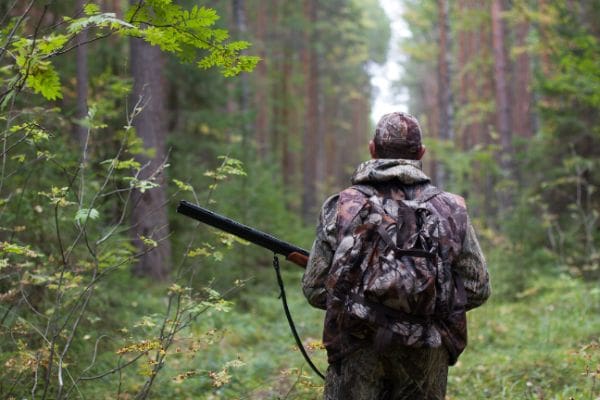EDGEFIELD, S.C. — Each fall, about 700,000 hunters take to Michigan’s fields and forests, supporting hundreds of jobs and contributing an estimated $2.8 billion to the state’s economy. However, like many states, Michigan has seen declines in hunter participation over the years, with lack of access being one of the primary barriers to hunter recruitment, retention and reactivation. A new collaborative project between the National Wild Turkey Federation, Pheasants Forever/Quail Forever and the Michigan Department of Natural Resources seeks to address this challenge by increasing hunting access and restoring native prairie habitats in southern Michigan.
The Michigan NWTF State Chapter is providing $20,000, matched by significant contributions from Pheasants Forever/Quail Forever and the Michigan DNR. These funds will be directed toward key project objectives, including:
- Increase Landowner Participation: Promote and boost landowner awareness and participation in the Conservation Reserve Program and Michigan DNR’s Hunting Access Program to expand public hunting opportunities on private lands throughout southern Michigan.
- Expand Hunting Access: Incentivize the enrollment of 2,000 new acres of quality upland habitat into the Hunting Access Program.
- Enhance Hunter Awareness: Raise awareness of Michigan’s public hunting opportunities and garner support for the Hunting Access Program and other access initiatives.
Established in 1977, Michigan’s Hunting Access Program provides financial incentives to private landowners willing to allow public walk-in hunting access to their land. Currently, the program offers access to over 21,000 acres of private lands throughout the state. If successful, this project will add 2,000 new acres to the Hunting Access Program, representing a 17% increase in publicly accessible private lands throughout the southern Michigan project area.
Landowners within the southern Michigan project area who are willing to allow public walk-in hunting through the Hunting Access Program will be offered one-time sign-up incentive payments and increased annual rental payments. Eligible properties must have a minimum of 20 acres enrolled in a grassland habitat program, such as the Conservation Reserve Program, and landowners must allow small game and turkey hunting on their property. Promotion and outreach efforts will be focused on “access cold zones,” identified by the Michigan DNR as areas more than 15 miles from the nearest tract of publicly accessible land. Higher payment rates may be used to further incentivize enrollment in these zones.
By enhancing public access to high-quality habitats and fostering cooperation between landowners and conservation organizations, this project will not only uphold hunting traditions but also strengthen wildlife conservation efforts. Together, the Michigan NWTF State Chapter and its partners are taking concrete steps to ensure that future generations can enjoy the rich outdoor heritage that Michigan has to offer.
“We are delighted to be able to provide financial support to Pheasants Forever who has been a longstanding conservation partner of ours across the country and here in Michigan,” said Ryan Boyer, NWTF district biologist for Indiana, Michigan and Ohio. “This endeavor in cooperation with the Michigan DNR will not only help increase access for hunters in a predominately private land region of the state, but also focuses on the habitat composition on these parcels by providing financial incentives for landowners who are maintaining high quality upland bird nesting and brood-rearing habitat. This partnership is an incredible example of how we can deliver on the entire mission of the NWTF addressing our most critical needs.”
About the National Wild Turkey Federation
Since 1973, the National Wild Turkey Federation has invested over half a billion dollars into wildlife conservation and has positively impacted over 23 million acres of critical wildlife habitat. The NWTF has also invested over $10 million into wild turkey research to guide the management of the wild turkey population and to ensure sustainable populations into perpetuity. The organization continues to deliver its mission by working across boundaries on a landscape scale through its Four Shared Values: clean and abundant water, healthy forests and wildlife habitat, resilient communities, and robust recreational opportunities. With the help of its dedicated members, partners and staff, the NWTF continues its work to provide Healthy Habitats. and Healthy Harvests. for future generations.
Read the full article here




